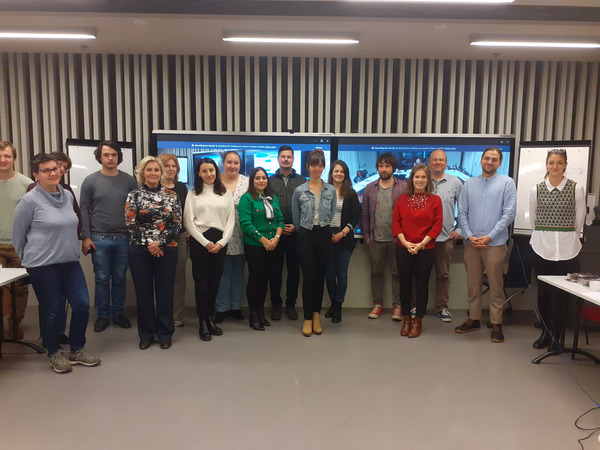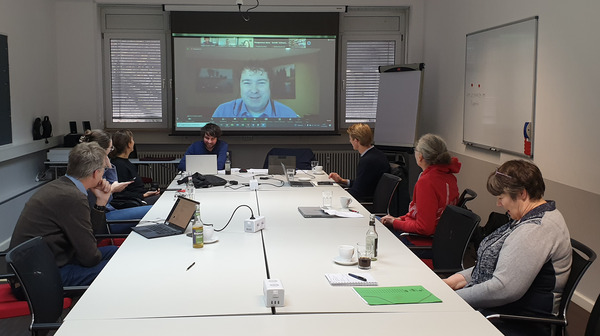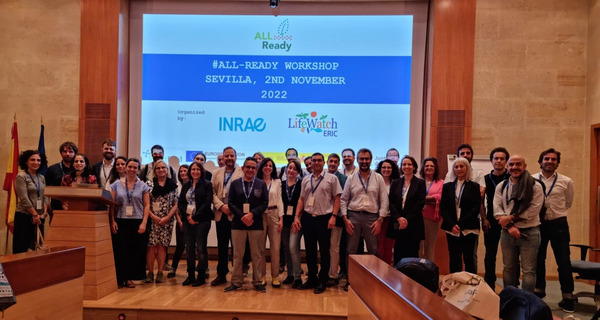Lifewatch ERIC and INRAE made the start with the first workshop in Sevilla (Spain) on 2 November welcoming 40 participants from various initiatives of Andalusia, but also other parts of Spain and even Portugal. The second workshop, which was organised by INRAE and the Thünen Institute of farm Economics, took place on 17 November in Frankfurt/Main (Germany). The meeting was held in a hybrid format and brought together participants from Belgium, Canada, France, Germany, Netherlands, Portugal, Spain and the USA. While the number of participants with around 20 was smaller than in Sevilla, very fruitful discussions developed in the breakout sessions, in which the participating initiatives had the possibility to share their experiences and thoughts in smaller groups. The third regional workshop took place in Budapest (Hungary) on the 24 November as a subsequent event of the 3rd ALL-Ready Pilot Network Meeting. The third workshop was organised by ÖMKi, INRAE and the Thünen Institute of Farm Economics and brought together around 25 participants from all over Hungary, Latvia, Slovakia and Spain who joined for the next round of interesting and productive debates and exchanges. The fourth and last workshop was held in Billund, Denmark, on the 2 of December, organised by Aarhus University, Department of Agroecology, with support from INRAE and Thünen Institute of Farm Economics.
During each workshop, after a short introduction round and presentation of the ALL-Ready project and the future European network and Horizon Europe partnership on agroecology Living Labs and Research Infrastructures, the ALL-Ready online questionnaire was explained and illustrated to the participants. The questionnaire collects information on activities and values of Living Labs, Research Infrastructures and other open innovation arrangements and enables these initiatives to situate themselves within the agroecology transition process.
In the main part of the workshops, break-out groups of 6-9 people discussed questions related to the experiences of their Living Labs and Research Infrastructures in accelerating transitions to agroecology. The participants debated about the focus and roles of their initiatives within the transition process, challenges they face, their views about a future European network and their potential role in it. The discussions captured insights from a wide range of Living Labs and Research Infrastructures, some are mature and well-established over many years, while others are new and have only been recently set up, and facilitated learning from each other.
The initiatives cover different activities within the agroecology transition, from crop farming with reduced tillage or pesticide usages to advanced research in technology development for innovative and efficient, more sustainable agriculture. The challenges that the initiatives are facing, are as diverse as the initiatives themselves. However, commonly experienced challenges relate to funding. Participants discussed possible solutions and challenges, such as long-term funding and the insecurity of financial viability after the end of a funded project, intensive and time-consuming fundraising activities, and the monitoring of the performance of Living Labs and Research Infrastructures to inform on, or validate, the impact that the funding has achieved. In addition to sharing experiences, knowledge and new perspectives through co-creation processes, most participants also expect from a European network practical solution such as collaborating in fundraising, data management or equipment usage.
Altogether, the series of workshops was very successful in raising awareness of the future Horizon Europe Partnership and European Network of Agroecology Living Labs and Research Infrastructures. The workshops generated valuable insights into Agroecology Living Labs and Research Infrastructures that further inform our mapping of initiatives involved in transitions to agroecology across Europe, and provided a platform for networking amongst the initiatives. We would like to thank all participants for their time and valuable contributions and look forward to continue the discussions at a second set of regional workshops in spring 2023.






 tap and then scroll down to the Add to Home Screen command.
tap and then scroll down to the Add to Home Screen command.